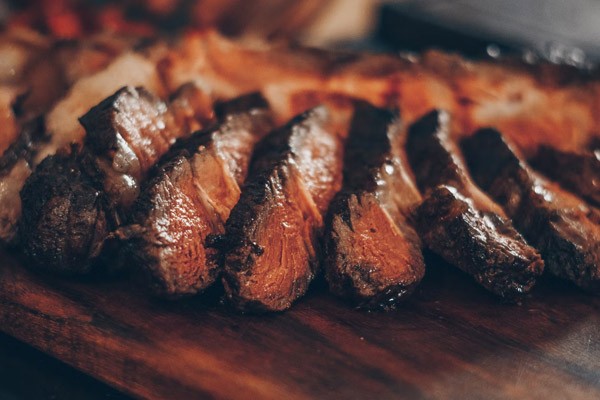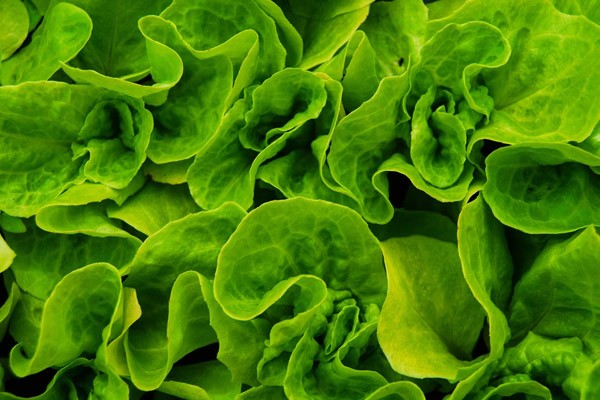What's the rage with the carnivore diet? Is it recommended?

What is the Carnivore diet?
The Carnivore Diet involves eating only meat and animal products and abstaining from other foods. To give you an idea:
- Meat: beef, chicken, turkey, organ meats, lamb, pork, etc.
- Fish: salmon, mackerel, sardines, crab, lobster, tilapia, herring, etc.
- Other animal products: eggs, lard, bone marrow, bone broth, etc.
- Low-lactose dairy (in small amounts): heavy cream, hard cheese, butter, etc.
- Water
This is what's forbidden on the Carnivore Diet:
- Fruits: apples, berries, bananas, kiwi, oranges, etc.
- High-lactose dairy: milk, yoghurt, soft cheese, etc.
- Vegetables: broccoli, cauliflower, potatoes, green beans, peppers, etc.
- Legumes: beans, lentils, etc.
- Nuts and seeds: almonds, pumpkin seeds, sunflower seeds, pistachios, etc.
- Grains: rice, wheat, bread, quinoa, pasta, etc.
- Alcohol: beer, wine, liquor, etc.
- Sugars: table sugar, maple syrup, brown sugar, etc.
- Beverages other than water: soda, coffee, tea, fruit juice, etc.
I personally don't believe diets should ever be restrictive in this sense.
It's about sustainability -- there's no use following "the world's best diet" if you can't stick to it.
But if you can, well, great.
But there may be other issues with it that we'll get too soon.
The other problem the Carnivore Diet poses is that there are no guidelines around servings or calories. It's just "eat whatever you want from these foods."
Ok, so what good research do we have into the Carnivore Diet and its efficiency?
Well, there have been next to none. But this study, which was a social media survey (so take it with a grain of salt) concluded:
"Contrary to common expectations, adults consuming a carnivore diet experienced few adverse effects and instead reported health benefits and high satisfaction. Cardiovascular disease risk factors were variably affected. The generalizability of these findings and the long-term effects of this dietary pattern require further study."
So we need more research. Yep, and certainly from better scientific studies like randomised controlled trials, not people "reporting" they felt great. But, it's something. And anything that generates some form of a hypothesis is another potential step to scientific truth.
Another study was in the context of a review, to ask the question: "Can a carnivore diet provide all essential nutrients?"
It concluded:
- "Every essential nutrient can be found in animal source foods, but not always in high levels in commonly eaten ones."
- "Historical and clinical data suggest that all acute micronutrient needs can be met without plants, but long-term consequences are unknown."
- "Calcium levels, in particular, may be compromised over time, and merit further study, especially in order to disentangle effects of acidity, bone growth stimulation and interacting nutrients."
Now that first point is interesting. And it's totally true. Take a look at the table below to see how animal products are superior to plant products for nutrients:
Table 1. Common Plant and animal nutrient sources (per 100g)
| Nutrient | Plant source | Animal source | ||
|---|---|---|---|---|
| Thiamin | Macadamia nuts | 1.2 mg | Pork loin | 0.6 mg |
| Riboflavin | Raw spinach | 0.2 mg | Beef liver | 3.4 mg |
| Niacin | Green peas | 2.1 mg | Beef liver | 17.5 mg |
| B6 | Potato | 0.3 mg | Beef liver | 1.0 mg |
| Folate | Raw spinach | 194 mcg | Beef liver | 253 mcg |
| Iron | Raw spinach | 2.7 mg | Beef liver | 6.5 mg |
| Vitamin A | Sweet potato | 961 mcg | Beef liver | 9442 mcg |
| Calcium | Sesame seeds | 975 mg | Parmesan cheese | 1184 mg |
| Potassium | Potato | 535 mg | Beef top round | 330 mg |
| Zinc | Green Peas | 1.2 mg | Oysters | 16.6 mg |
| Vitamin C | Oranges | 53.2 mg | Beef tongue | 1.3 mg |
***Graph from the above-cited study.
But this means you'll be eating beef liver a fair bit, not to mention shelling out the cost for Oysters frequently.
And they're not exactly everyday foods, which is one of the key points the researchers made.
And the biggest issue I have is there's next to no fibre in the diet, which could be a significant problem.
The importance of fibre for health
There's just too much scientific data out there for me to want to throw out my daily greens intake and thus fibre.
It might be one of the stupidest things you could do for your health.
Firstly, fibre comes in two varieties: soluble and insoluble.
Soluble fibre is metabolised by bacteria that sits in the large intestine. In short, it's healthy and good for us!
Now we don't know for sure, but there's surely a lot of evidence to say it's worth us getting enough of it.
For example, further evidence suggests we're helping to potentially protect ourselves against colon, breast, ovary, and endometrial cancer by getting enough dietary fibre.
Now let me be clear, I'm not saying fibre prevents cancer. It's just we have data to suggest it may reduce our risk of it. More research is needed.
Previous fibre recommendations have been to consume 14 grams of fibre per 1000 calories eaten.
So if you're eating 2000 calories per day you'd consume 28 grams of fibre per day. But recent reviews state "the ideal (fibre) intake should be more like 50 g/d to potentially prevent colitis and colon cancer."
So this is one of the problems I have with the carnivore diet.

The other issue is, the carnivore diet is no better for weight loss than any other dietary approach.
It works well because it's high in protein, which I've told you many times is the most important macronutrient for a weight loss diet.
Regardless of how you consume your calories, you'll lose weight.
The bottom line on Carnivore diet
Is that there is no solid evidence a Carnivore diet is better for our health long term. It's true that every essential nutrient can be found in animal source foods, but not always in high levels in commonly eaten ones. Beef liver is an example, and it's not exactly an everyday food. Whilst you can get all your micronutrients without eating plants, the long term consequences are unknown. Dietary fibre is supported by the current large body of evidence to potentially help us prevent cancer and fight free radicals. A Carnivore diet is no better than a normal approach to weight loss: a high protein diet and eating your allocated amount of macronutrients as part of a balanced diet. More research into the Carnivore diet is needed before definitive statements can be made.
References:
- Lennerz BS, Mey JT, Henn OH, Ludwig DS. Behavioral Characteristics and Self-Reported Health Status among 2029 Adults Consuming a "Carnivore Diet". Curr Dev Nutr. 2021 Nov 2;5(12):nzab133. doi: 10.1093/cdn/nzab133. PMID: 34934897; PMCID: PMC8684475.
- O'Hearn A. Can a carnivore diet provide all essential nutrients? CurrOpin Endocrinol Diabetes Obes. 2020 Oct;27(5):312-316. doi: 10.1097/MED.0000000000000576. PMID: 32833688.
- Yang J, Wang HP, Zhou L, Xu CF. Effect of dietary fiber on constipation: a meta analysis. World J Gastroenterol. 2012;18(48):7378-7383. doi:10.3748/wjg.v18.i48.7378
- Holscher HD. Dietary fiber and prebiotics and the gastrointestinal microbiota. Gut Microbes. 2017;8(2):172-184. doi:10.1080/19490976.2017.1290756
- Shankar S, Lanza E. Dietary fiber and cancer prevention. Hematol Oncol Clin North Am. 1991 Feb;5(1):25-41. PMID: 1851150.
- Anderson JW, Baird P, Davis RH Jr, Ferreri S, Knudtson M, Koraym A, Waters V, Williams CL. Health benefits of dietary fiber. Nutr Rev. 2009 Apr;67(4):188-205. doi: 10.1111/j.1753-4887.2009.00189.x. PMID: 19335713.
- O'Keefe SJD. The Need to Reassess Dietary Fiber Requirements in Healthy and Critically Ill Patients. Gastroenterol Clin North Am. 2018;47(1):219-229. doi:10.1016/j.gtc.2017.10.005
- Dhingra D, Michael M, Rajput H, Patil RT. Dietary fibre in foods: a review. J Food Sci Technol. 2012 Jun;49(3):255-66. doi: 10.1007/s13197-011-0365-5. Epub 2011 Apr 12. PMID: 23729846; PMCID: PMC3614039.
- Farhath Khanum M, Swamy S, Sudarshana Krishna KR, Santhanam K, Viswanathan KR. Dietary fiber content of commonly fresh and cooked vegetables consumed in India. Plant Foods Hum Nutr. 2000;55:207–218.
- Schakel SF, Pettit J, Himes JH. Dietary fiber values for common foods. In: Spiller GA, editor. The CRC handbook of dietary fiber in human nutrition. 3. London: CRC; 2001.
- Kulczyński B, Kobus-Cisowska J, Taczanowski M, Kmiecik D, Gramza-Michałowska A. The Chemical Composition and Nutritional Value of Chia Seeds-Current State of Knowledge. Nutrients. 2019;11(6):1242. Published 2019 May 31. doi:10.3390/nu11061242
- Jebb S. Dietary determinants of obesity. Obes. Rev. 2007;8:93–97. doi: 10.1111/j.1467-789X.2007.00326.x.
- Menni C., Jackson M.A., Pallister T., Steves C.J., Spector T.D., Valdes A.M. Gut microbiome diversity and high-fibre intake are related to lower long-term weight gain. Int. J. Obes. 2017;41:1099. doi: 10.1038/ijo.2017.66.













































